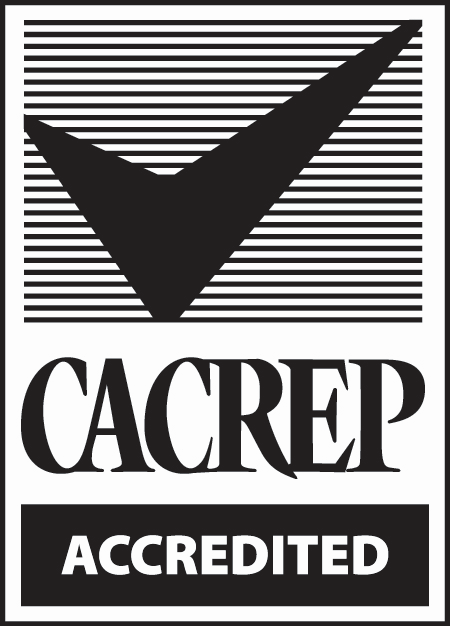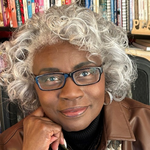Mason’s Counseling Program trains counselors to promote the academic, socio-emotional, mental health and well-being of children, adolescents, and adults as well as become an advocate for social, economic, and political justice.
Transform someone’s life as a counselor. School counselors and clinical mental health counselors transform the lives of individuals in the communities they serve.
Mission Statement
Mason’s Counseling Program infuses values integral to the preparation of professional counselors—social justice, multiculturalism, internationalism, advocacy, and leadership—into its celebrated curriculum. Graduates are prepared to assume leadership roles; be proactive change agents; and become advocates for social, economic, and political justice. By working through interdisciplinary teams as well as infusing teaching, research, service, and professional practice, the Mason counseling program will prepare the next generation of counselors to serve the collective needs of individuals through local, national, and international contexts.
The Mason Counseling Program is CACREP accredited.
The Importance of Counseling
Counseling is a professional relationship between a trained individual and a child, adolescent, adult, couple, family, or group in which information is shared, coping skills are learned, and change occurs. Counseling is important to all individuals because everyone needs someone to talk to and consult with to achieve personal growth. In today’s world, the normalization of counseling makes it accessible, thus it can be incorporated in every aspect of our lives. We prepare counselors to use multiple modalities such as creative and trauma-informed approaches. With various presenting concerns across the lifespan, including substance abuse, trauma, and educational stressors, counselors can work in various settings with diverse populations such as listed below:
Settings
- P-12 schools
- Mental health counseling agencies
- Private practice
- Career onestop centers
- Institutions of Higher Education (e.g., counseling and career centers, academic advising)
Populations
- Couples/Families
- Military
- Children/adolescence
- Older adults
- Immigrants
- Neurodivergent/Special needs
Why study counseling at Mason?
- World-class faculty
- Study at Virginia’s largest and most culturally affirming university
- Classes are scheduled within a cohort model
- Full time and part time options
- 15% discount for Virginia educators
- 94% of our students attained jobs upon graduation
Where will this program take you?
- Develop an understanding of and ability to function effectively within ethical guidelines
- Understand the impact of social and cultural factors on marginalized populations and recognize opportunities to address social injustices
- Understand factors that impact human development and culturally responsive strategies for promoting wellness throughout the life span
- Learn how to facilitate career development
- Build the skills to facilitate effective counseling relationships and the ability to conceptualize cases and plan interventions with clients/students from across intersections of identities.
- Understand group dynamics and how to facilitate racially, ethnically, and culturally inclusive groups
- Utilize assessment appropriately within the counseling process
- Understand research design and how to utilize data
- Develop professional dispositions that are appropriate for professional counselors
- Train pre-service counselors to work in a school or clinical setting (or both)
Find out more about Mason’s counseling degree options under Graduate Options.
The Counseling Program is committed to preparing counselors who promote the social, psychological, physical, and spiritual health of individuals, families, communities, and organizations in order to contribute to the advancement of global well-being. The program strives for national and international excellence in implementing a counseling perspective that provides a foundation in basic counseling skills and focuses on social justice, multiculturalism, internationalism, advocacy, and leadership. It is our belief that a global perspective on development across the life span, and an understanding and appreciation of multiculturalism, diversity, and social justice, are integral to the preparation of professional counselors, requiring that professional counselors are prepared to assume leadership roles, be proactive change agents, and become advocates for social, economic and political justice. The program is committed to accomplishing this mission by working through interdisciplinary teams as well as promoting the interconnectedness of teaching, research, service, and professional practice. Through this mission, faculty will facilitate a continued tradition of international, national, and regional leadership through the development of collaborative partnerships and projects, research, publications, presentations, consultation, and training.
The Counseling program entails coursework and field experiences that will prepare students to be School Counselors or Clinical Mental Health Counselors (Licensed Professional Counselors). The program objectives and student learning outcomes of the program are as follows:
Program Objective A: To equip students with the knowledge and skills to become ethical and effective counselors in a complex society with diverse populations, with a concentration on practicing either as a clinical mental health counselor or a school counselor
Student Learning Outcome 1: Professional Counseling Orientation and Ethical Practice
- Students will develop an understanding of and ability to function effectively within ethical guidelines.
Student Learning Outcome 2: Social and Cultural Diversity
- Students will develop an understanding of the impact of social and cultural factors on diverse populations and recognize opportunities to address social injustices as appropriate.
Student Learning Outcome 3: Human Growth and Development
- Students will develop an understanding of factors that impact human development and strategies for promoting wellness throughout the life span.
Student Learning Outcome 4: Career Development
- Student will develop an understanding of how to facilitate career development.
Student Learning Outcome 5: Counseling and Helping Relationships
- Students will develop skills to facilitate effective counseling relationships and the ability to conceptualize cases and plan interventions with clients/students from multicultural backgrounds.
Student Learning Outcome 6: Group Counseling and Group Work
- Students will develop an understanding of group dynamics and how to facilitate multicultural/diverse groups.
Student Learning Outcome 7: Assessment and Testing
- Students will develop the ability to utilize assessment appropriately within the counseling process.
Student Learning Outcome 8: Research and Program Evaluation
- Students will develop an understanding of research design and how to utilize data.
Student Learning Outcome 9: Professional Concentrations
- Clinical Mental Health Counseling (CMHC) Professional Concentration Students will develop an understanding of case conceptualization, treatment planning, prevention, and intervention related to mental health counseling.
- School Counseling (SC) Professional Concentration Students will develop an understanding of the roles of school counselors and strategies for promoting equity as appropriate.
Program Objective B: To prepare students with appropriate dispositions to engage in ethical, social justice focused counseling with an intersectional praxis, and to attend to growth, self-awareness, interpersonal relationships, and collaboration.
Student Learning Outcome 10: Professional Dispositions
- Students will develop professional dispositions that are appropriate for professional counselors.
Program Objective C: To recruit, support, and retain counseling students from diverse backgrounds.
Program Objective D: To provide counseling training that is grounded in the latest knowledge in the field and is responsive to current and changing needs of the communities we serve, including attending to the intersecting identities of our clients/students within a social justice framework.
Annual Report
The Mason Counseling Program reviews data and makes changes to improve our program on an annual basis.










